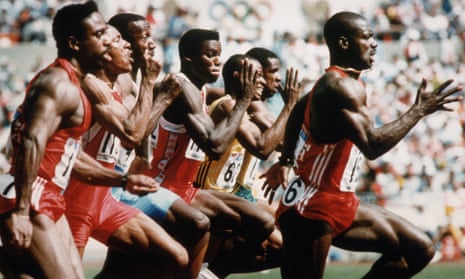An Olympic-styled competition for drug-taking athletes is being launched by an Australian entrepreneur.
Melbourne-born, London-based businessman, Aron D’Souza is the president of Enhanced Games, a coalition of athletes, doctors and scientists. He plans to stage the inaugural games of no drug testing in December next year, with two high-profile Australian athletes among those expressing interest.
The competition is challenging the Olympic Games model which, he says, is broken.
“The IOC (International Olympic Committee) has effectively been a one-party state running the world of sport for 100 years,” D’Souza told AAP. “And now the opposition party is here. We are ready for a fight. I know they are going to play dirty. I know they are going to threaten us. But ultimately we know that we are morally correct.”
Five sports categories - track and field, swimming, weightlifting, gymnastics, and combat sports - will be on the program of the Enhanced Games, to be held annually.
Australia’s Olympic chef de mission for Paris 2024 and former Olympic gold medallist Anna Meares says she is appalled by the concept. “It’s a joke, to be honest. Unfair, unsafe — I just don’t think this is the right way to go about sport,” she said.
D’Souza remains defiant: “Athletes are adults ... and they have a right to do with their body what they wish - my body, my choice; your body, your choice,” he said. “And no government, no paternalistic sports federation, should be making those decisions for athletes - particularly around products that are FDA regulated and approved.”
D’Souza said there was great curiosity about any limit to human endeavours. “It’s not just a question of can we break the nine-second 100 metre, I am sure we will,” he said. “I want to see a 40, 50, 60-year-old break world records because performance medicine is the rod to anti-ageing, it’s the route to the fountain of youth. Nothing will improve the productivity of our society more than preventing ageing. It sounds like science fiction now but we live in the future, look at the rise of artificial intelligence and other technologies.
“And the reason why anti-ageing has been so stymied in the scientific community is because hundreds of millions of dollars of taxpayer money around the world is going to fund anti-science authorities - ie WADA, USADA, Sports Integrity Australia - whose job it is to stop scientific progress. The reality is that the IOC and WADA have created an unsafe system which has forced the use of performance enhancements underground.”

A location for the inaugural Enhanced Games was yet to be settled but a city wouldn’t need to spend exorbitant funds to host, as Olympic cities do, he said. “By reducing it from 13,000 (Olympic) athletes to maybe a couple of thousand, no specialist infrastructure - instead of costing $100 billion to deliver this, it will cost double-digit millions,” D’Souza said.
after newsletter promotion
D’Souza said competing athletes would be given stocks in Enhanced Games, a for-profit entity which he was self-funding but also attracting interest from investors in California’s Silicon Valley, the location of many start-up and global tech companies including Apple and Google.
“If you participate, you’re going to get stock in the league and be a co-owner and that is really important to us because that is going to be an opportunity for athletes to generate wealth,” he said. “I assumed that if you were an Olympian and won a gold medal, your life is made - it’s not the case. It’s sad to see people who have achieved the highest level of human excellence and they’re living an objectively impoverished existence. At the same time you have these sports bureaucrats earning millions.”
The Enhanced Games website bears a list of ‘enhanced world records’ which celebrates the achievements of athletes stripped of medals and records for doping.
“The IOC has committed itself to vilifying enhanced athletes,” it reads. “Each Olympiad, another cohort of brave athletes sets new world records, only to have their medals revoked, their careers suspended, and their names dragged through the mud. It is time to end this oppressive cycle. The Enhanced Games hereby reinstates the world records set by the following athletes and commends them for their bravery.”
The list includes seven-time Tour de France winner Lance Armstrong, who was later stripped of his medals for testing positive to performance-enhancing drugs.
